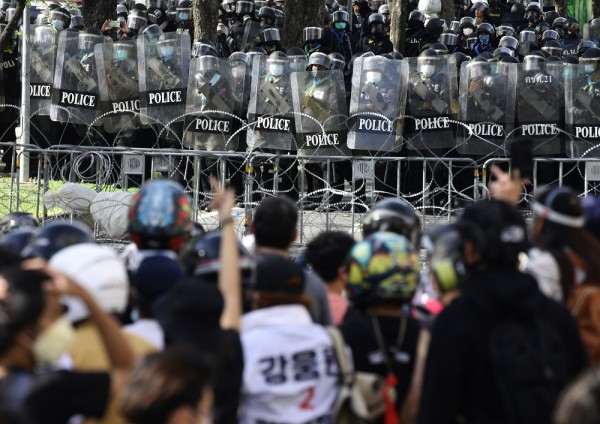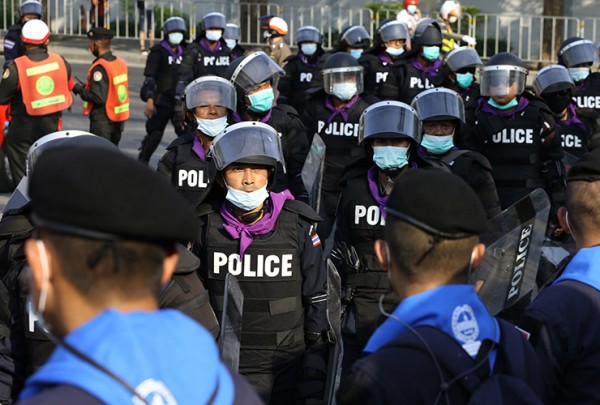The International Press Institute (IPI) on Monday expressed concern about the lèse majesté charges pending against Thai editor Somyot Prueksakasemsuk in connection with two articles that appeared in his newspaper, the Voice of the Oppressed (Voice of Taksin), earlier this year and which, Thai authorities argue, made negative references to the monarchy.
Lèse majesté laws, which have recently come under criticism by the UN Human Rights Council, have often been used to stifle any expression of critical opinions about the Thai monarchy.
“The threat of a long prison sentence and vagueness of what kinds of expression constitute defamation, insult, or threat to the monarchy, encourage self-censorship and stifle important debates on matters of public interest,” said Frank La Rue, the UN’s Special Rapporteur on the right to freedom of opinion and expression, criticizing Thailand’s lèse majesté laws.
Somyot Prueksakasemsuk was arrested on 30 April 2011 in the Aranyaprathet district of Sa Kaeo Province, and charged with contravening Section 112 of the Thai Criminal Code (lèse majesté), which states that “whoever defames, insults or threatens the King, the Queen, the Heir-apparent or the Regent, shall be punished with imprisonment of three to fifteen years”. He has been in pre-trial detention ever since and has been consistently denied bail.
The hearings in Somyot’s case will start on 21 November and continue until May 2012.
“We call on Thai courts to keep in mind the commitment to limiting misuse of lèse majesté laws that the Thai representatives made at a recent session of the UN Human Rights Council,” IPI Executive Director Alison Bethel McKenzie said.
During the Human Rights Council’s review of Thailand’s human rights status in October this year, Thailand responded to criticism about its lèse majesté law, admitting that there was room for improvement in order to avoid misuse of the law.
“Any law that foresees lengthy jail terms for the publication of ideas or information represents a serious breach of the right to press freedom, which is a fundament of any democracy and which Thailand has committed to respect,” Bethel McKenzie said.
The IPI executive director also noted that Somyot should immediately be granted bail, in accordance with Thai and international law in this field.


